The government has set-up funding bands to determine the maximum you can spend on each apprenticeship training course through your digital account and employers who do not pay the levy will pay 5% of the training cost of each apprentice they take on and remaining 95% will be paid by the government.
Example: Emma is undertaking a level 3 retail team leader apprenticeship with a non-levy employer. The government has set maximum funding bands for this apprenticeship training is £5000. The agreed training cost between employer and the training provider decided is £5000. Out of total £5000 training cost, the government will pay £4750 and the employer will pay £250.
Example: Ava is undertaking a level 3 radio network technician apprenticeship with a non-levy employer, ABC limited. The government has set maximum funding bands for this apprenticeship training is £15000. The agreed training cost between employer and the training provider decided is £15000. Out of total £15000 training cost, the government will pay £14250 and the employer will pay £750. ABC limited has used employer incentives to pay £750 which they have had received from the government for hiring an apprentice.








